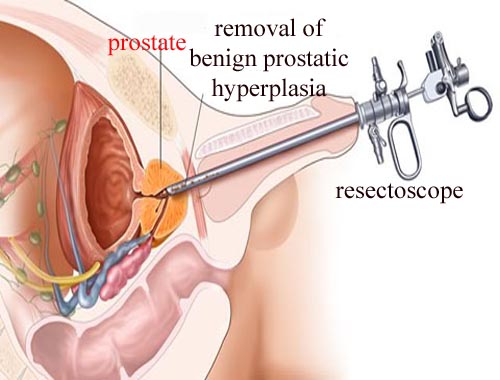Benign Prostatic Hyperplasia; Prostate gland enlargement
Prostate gland enlargement is a common condition as men get older. Also called benign prostatic hyperplasia (BPH) and prostatic hypertrophy, prostate gland enlargement can cause bothersome urinary symptoms. Untreated prostate gland enlargement can block the flow of urine out of the bladder and can cause bladder, urinary tract or kidney problems. There are several effective treatments for prostate gland enlargement. In deciding the best option for you, you and your doctor will consider your particular symptoms, the size of your prostate, other health problems you may have and your preferences. Your choices may also depend on what treatments are available in your area. Treatments for prostate gland enlargement include medications, lifestyle changes and surgery. Prostate gland enlargement varies in severity among men and tends to gradually worsen over time. Prostate gland enlargement symptoms include: Weak urine stream; Difficulty starting urination; Stopping and starting while urinating; Dribbling at the end of urination; Frequent or urgent need to urinate; Increased frequency of urination at night (nocturia); Straining while urinating; Not being able to completely empty the bladder; Urinary tract infection; Formation of stones in the bladder; Reduced kidney function. The size of your prostate doesn't necessarily mean your symptoms will be worse. Some men with only slightly enlarged prostates have significant symptoms. On the other hand, some men with very enlarged prostates have only minor urinary symptoms. Only about half the men with prostate gland enlargement have symptoms that become noticeable or bothersome enough for them to seek medical treatment. In some men, symptoms eventually stabilize and may even improve over time. The prostate gland is the male organ that produces most of the fluid in semen, the milky-colored fluid that nourishes and transports sperm out of the penis during ejaculation (orgasm). It sits beneath your bladder. The tube that transports urine from the bladder out of your penis (urethra) passes through the center of the prostate. So, when the prostate enlarges, it begins to block (obstruct) urine flow. Most men have continued prostate growth throughout life. In many men, this continued growth enlarges the prostate enough to cause urinary symptoms or to significantly block urine flow. Doctors aren't sure exactly what causes the prostate to enlarge. It may be due to changes in the balance of sex hormones as men grow older.
